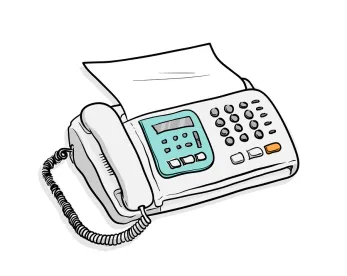TCPAland truly is a hotbed of statutory interpretation. As we eagerly await the ruling on the FCC’s Public Notice concerning the interpretation and scope of the TCPA in the wake of the ACA Int’l decision, and continue to monitor the developing case law concerning the impact of that decision (as I know everyone has been diligently following TCPAland), over here in the Archduke’s fax corner matters also continue to roll forward.
In Helping Hand Caregivers, Ltd. v. Darden Restaurants, Inc., et al., No. 17-1282, 2018 WL 3849281 (7th Cir. August 14, 2018), the Seventh Circuit confirmed that for unsolicited fax advertisements sent in violation of the TCPA, “liability attaches only as to those persons and entities on whose behalf the unsolicited fax is sent.” Id. at *4. In a potential agency scenario, when a fax advertises goods or services on behalf of a principal, that principal is only a “sender” of the fax if – based on the application of common law agency principles – the fax was sent on behalf of the principal. Ibid. Let’s unpack that.
In Helping Hand, the plaintiff received a fax advertising a lunch where a “wellness presentation” would be given by a doctor, and complimentary food catered by Olive Garden. The fax included the Olive Garden logo. The problem? Defendant Darden, which owns certain Olive Garden trademarks, never authorized the sending of the fax, or the use of the Olive Garden logo in fax advertisements. Plaintiff sued, and in opposing Darden’s motion for summary judgment, argued that Darden was the “sender” of the fax because Darden benefited from the advertisement, regardless of whether it authorized the advertisement.
Relating to so-called “junk faxes,” the TCPA, with certain exceptions, prohibits unsolicited advertisements sent by fax. 47 U.S.C. §227(b)(1)(C). Helping Hand concerns the fundamental definition of the term “sender” of such a fax. The TCPA defines ”sender” to mean “the person or entity on whose behalf a facsimile unsolicited advertisement is sent or whose goods or services are advertised or promoted in the unsolicited advertisement.” 47 C.F.R. § 64.1200(f)(10). The plaintiff in Helping Hand keyed in on the second clause of the sentence – “or whose goods or services are advertised or promoted in the unsolicited advertisement,” – and used it to argue that the language somehow “imposes a direct liability standard for anyone whose goods or services were promoted in the advertisement.” 2018 WL 3849281 at *3.
The Seventh Circuit quickly dismissed that thought, as without proper agency principles in such a situation, bizarre and potentially company-ending results could occur. It reasoned that “under a strict liability approach, a competitor could send out thousands of unsolicited facts [sic] promoting another company’s good or services, thereby bankrupting that company, even though the company played no part in sending or authorizing the faxes.” Id. at *4.
Exactly. “Nothing in the statue allows the imposition of liability on an entity wholly unaware of the use of its logo in a fax.” Id. at *5. The result makes sense, as imposing liability on such an innocent party is not only fundamentally unfair, but could have disastrous effects. As was shown in the recent article we re-published detailing one man’s fight against a $12.5 million award in a junk fax case, these cases can have significant financial implications, and should not be taken lightly. Here, however, innocent parties were given a helping hand in the Seventh Circuit’s confirming that, simply put, “to be liable as a sender, a person must have [actually] done something to advertise goods or services.” Id. at 4.



 />i
/>i

